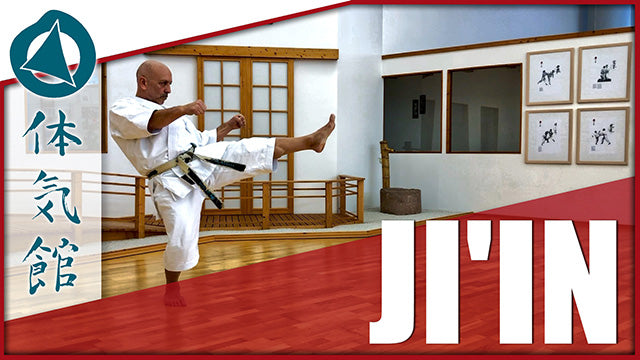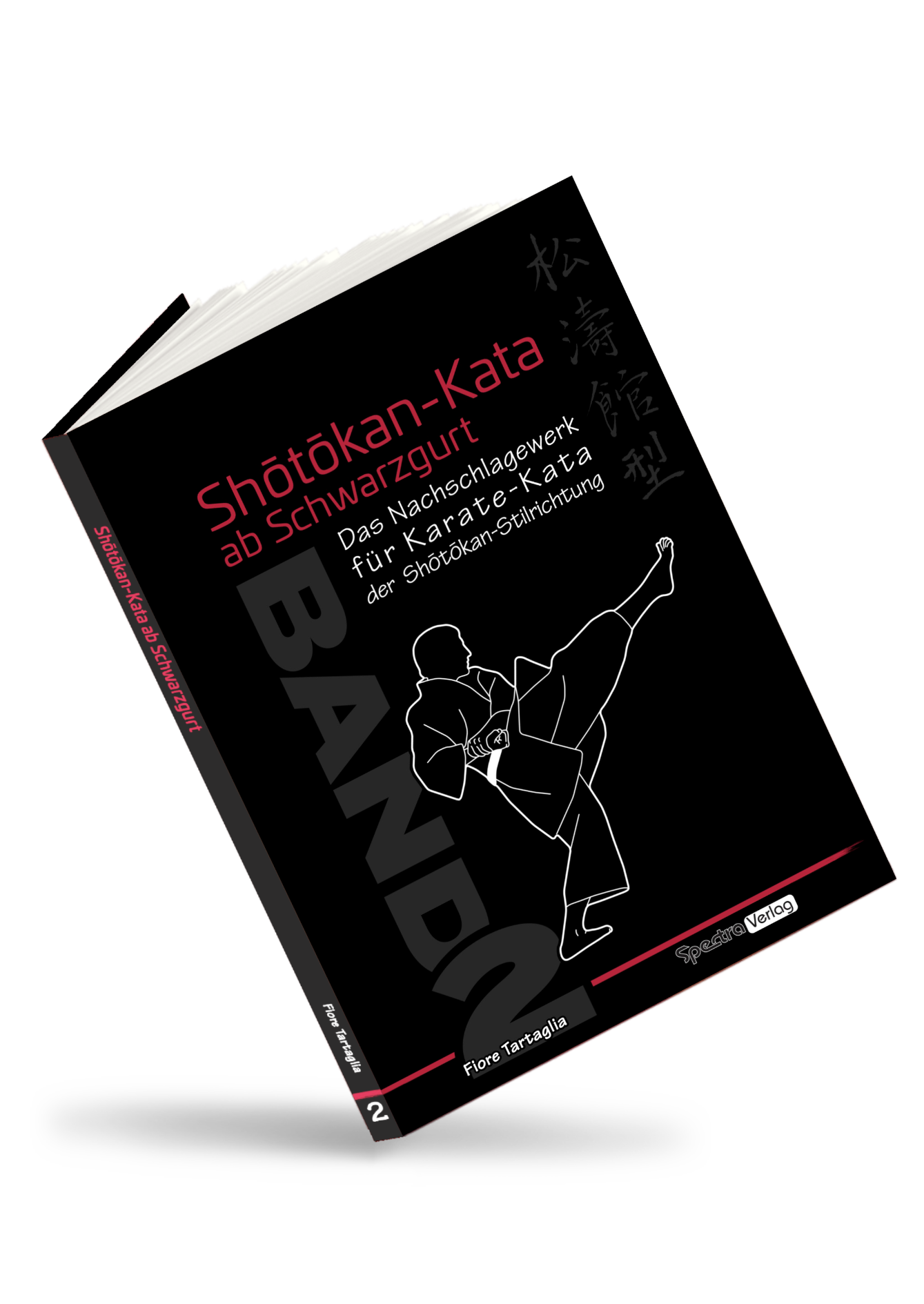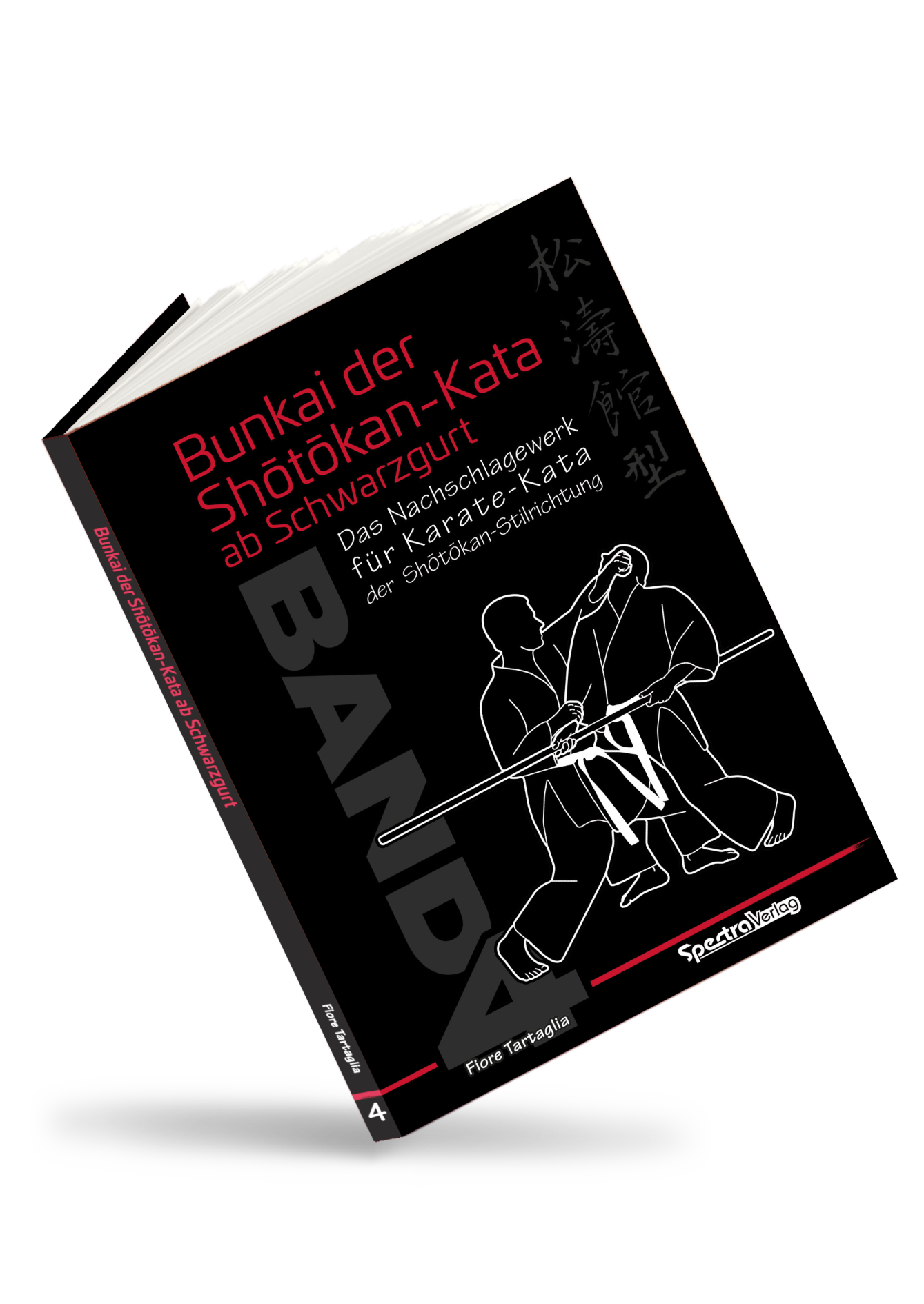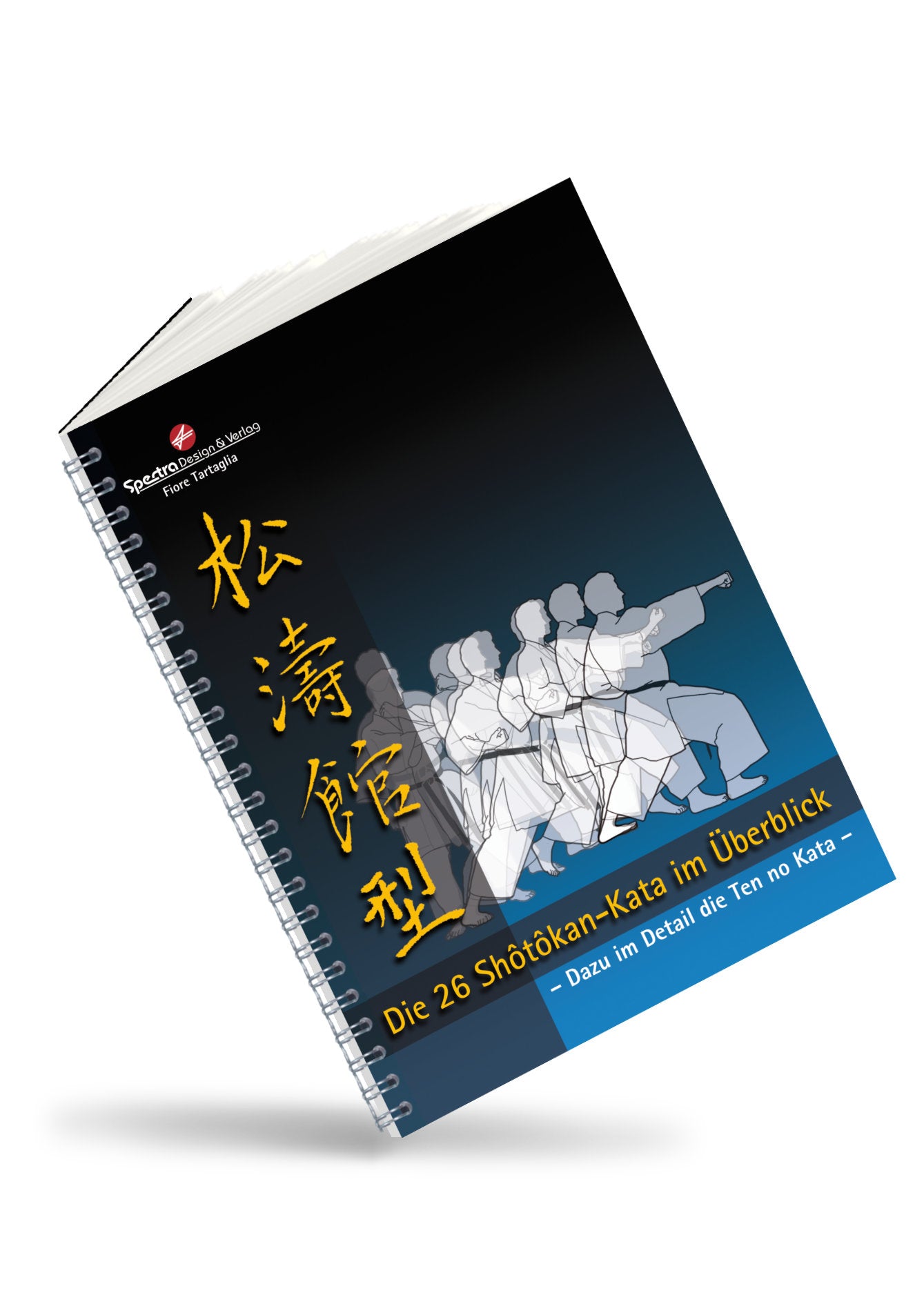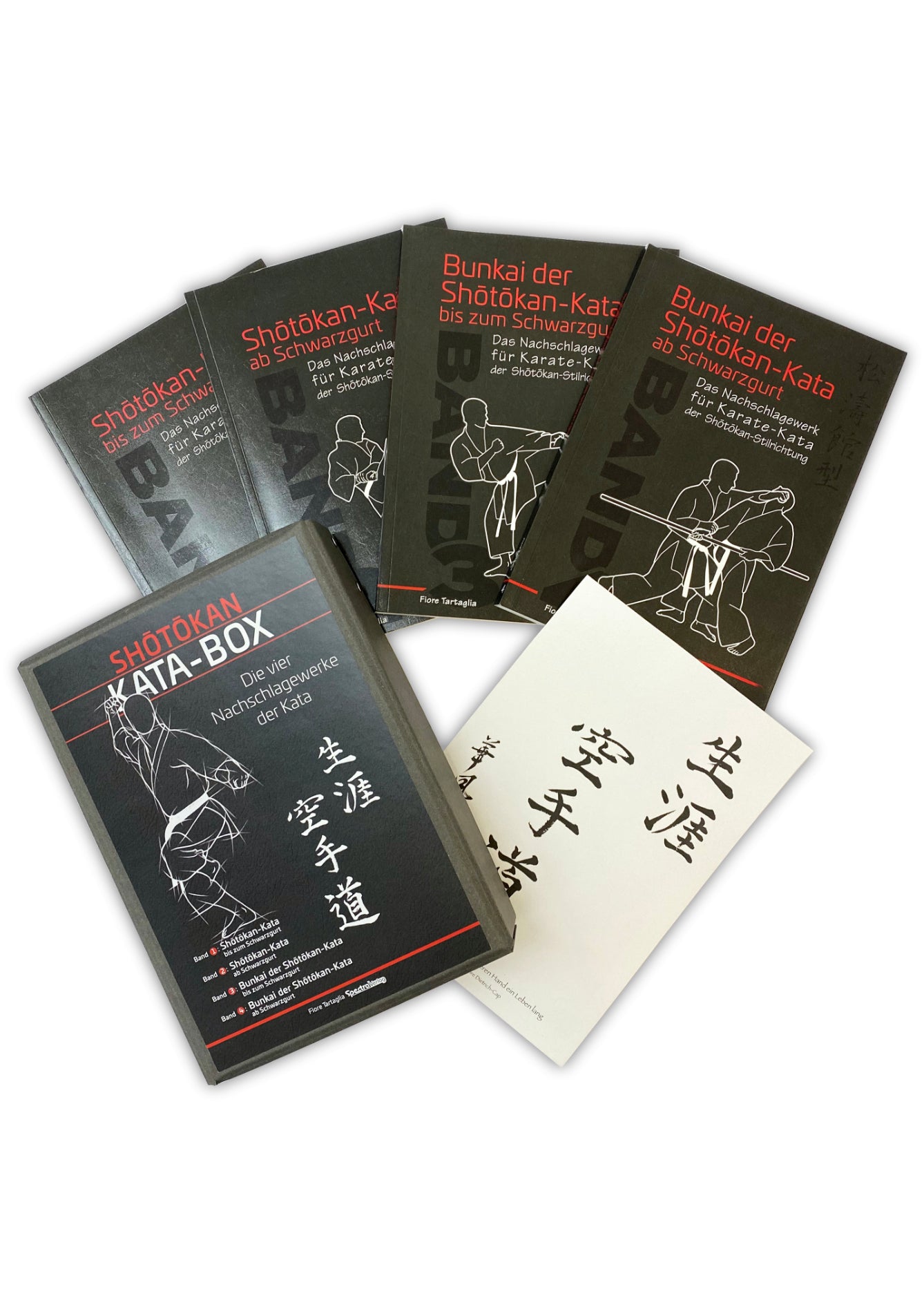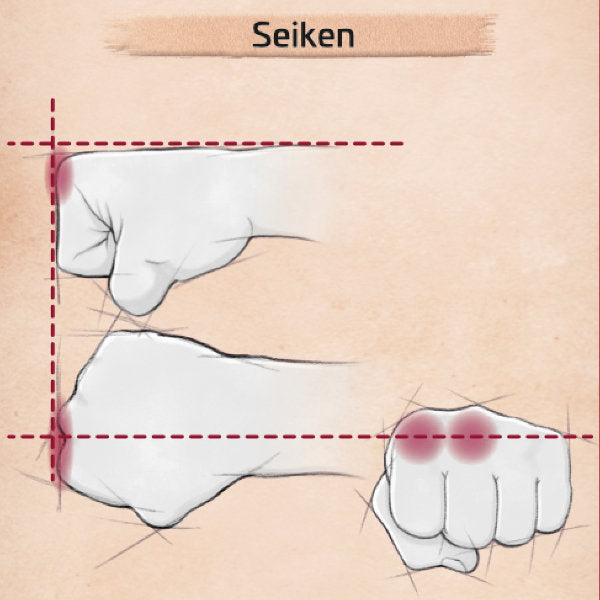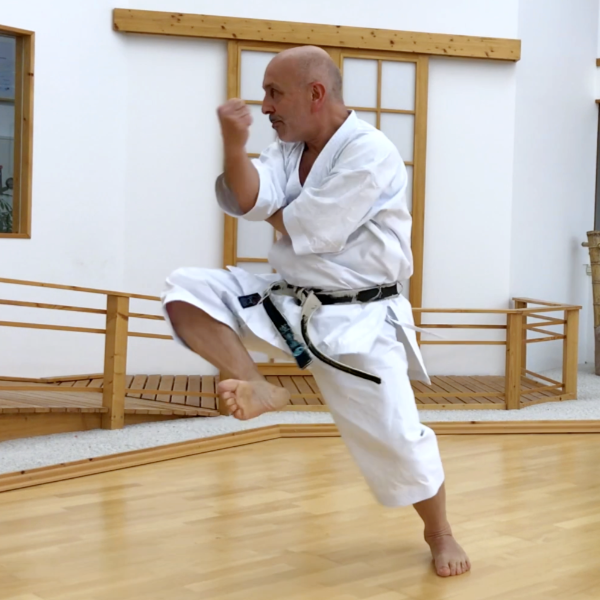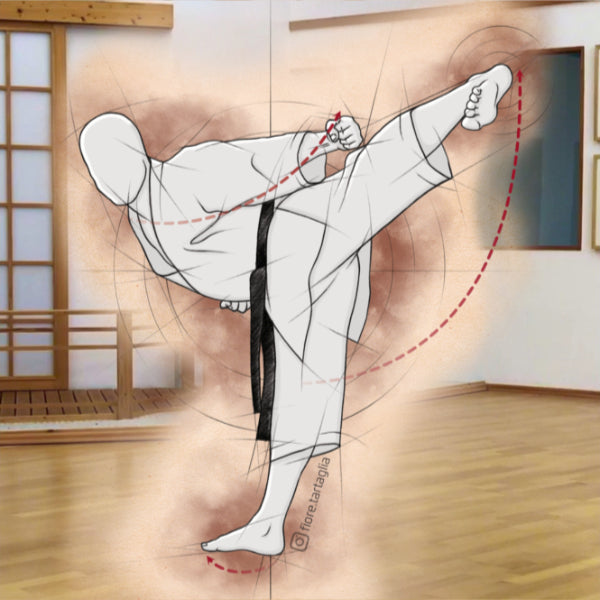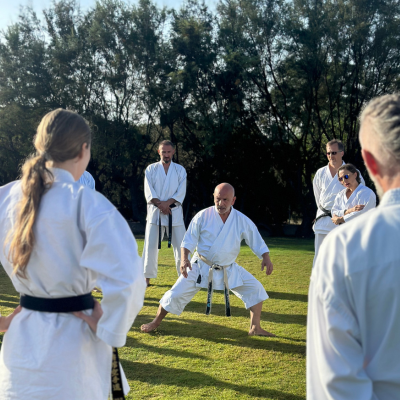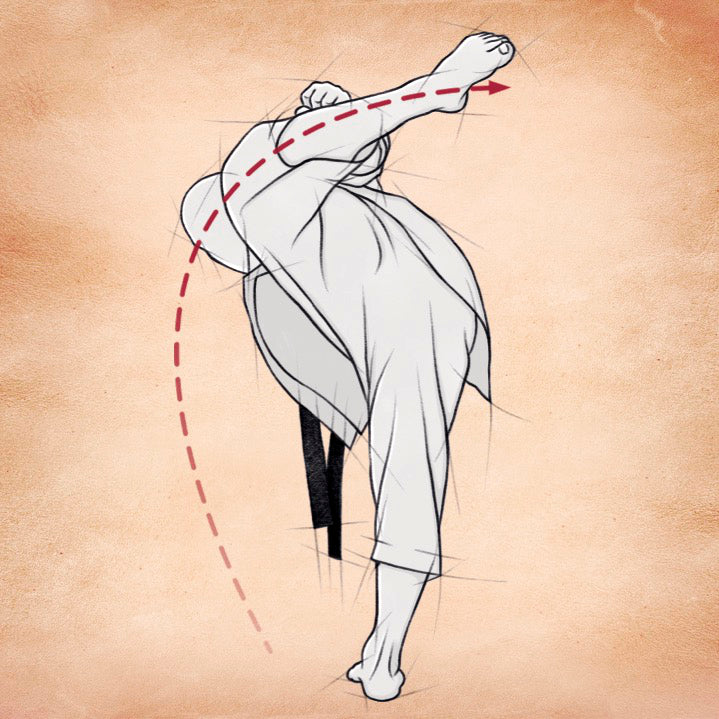CHINTE – RARE HAND.
The circular movements and the use of techniques rarely used in the Shōtōkan style, such as Nihon nukite and Tate zuki, are the reasons for the name “Chinte” (rare hand).
The yōi at the beginning of Chinte is performed in heisoku dachi. The hands are clenched into fists, with the right hand placed vertically above the left, held horizontally. Both hands are held against the body at solar plexus level. The yōi at the end of the kata is different from the one at the beginning. This is a special feature of "Rare Hand," which otherwise only occurs in Kankū dai.
An important learning effect in Chinte is the conscious use of the force generated by pressing the back foot onto the ground (transformation of Fudō dachi into Zenkutsu dachi).
The three sliding steps at the end are another special feature of this kata. They could be understood as an underscoring of the Zanshin principle (as a learning effect): After ending a combat situation, one remains alert, without taking one's eyes off the opponent, until a safe distance is reached.
From the first to the last gliding step, they are performed increasingly shorter. To do this, you glide back slightly to the right to return to the starting point of the kata.
Duration: approximately 60 seconds
CHINTE
Mehr für dich
Entdecke passende Produkte zu diesem Artikel/Video
Regular price
28,95 €
Sale price
28,95 €
Regular price
Unit price
/
per
Regular price
28,95 €
Sale price
28,95 €
Regular price
Unit price
/
per
Regular price
14,95 €
Sale price
14,95 €
Regular price
Unit price
/
per
Regular price
101,60 €
Sale price
101,60 €
Regular price
111,80 €
Unit price
/
per
